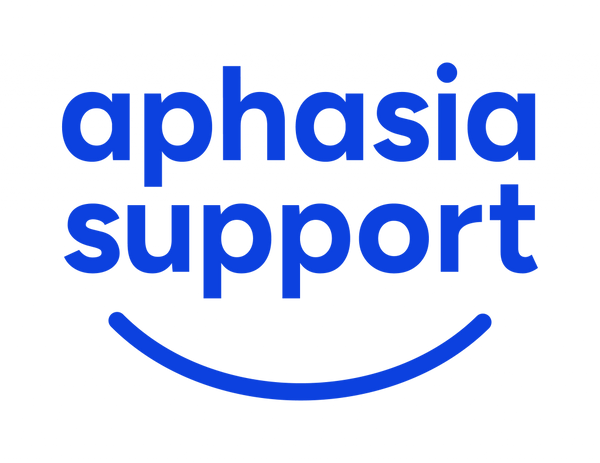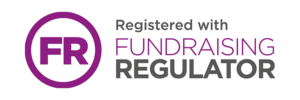Lost speech after stroke

With World Stroke Day fast approaching on 29th October, we’re talking a lot this month about lost speech after stroke.
Now, a lot of healthcare professionals don’t like the term ‘lost’ because it gives the wrong impression.
But many people use the term ‘lost speech’ to describe the symptoms of aphasia after stroke. Aphasia is a condition that affects your ability to speak and understand spoken and written language.
‘Lost’ speech gives the impression that it can be found again. Which isn’t strictly true. While many with aphasia can make new connections in the brain and improve their communication, they don’t simply find what has been lost.
Not everyone with aphasia has had a stroke. Aphasia can also be caused by a brain tumour or another kind of brain injury.
But a significant number of those we work with have experienced stroke.
Problems with speech after stroke

Communication and speech problems are super common after a stroke. Aphasia is the term we use to describe some of the problems that might affect you after your stroke.
- It can cause problems with your ability to speak and understand what others are saying to you.=
- You might also find you have problems with reading and writing.
Stroke is the leading cause of aphasia in the UK. And around a third of people who have had a stroke will experience some level of aphasia.
It affects everybody differently. Some people might have no problem with their understanding but find their ability to speak and find the right words severely affected.
Others will be able to form a wide variety of words perfectly fine. But they might arrange those words in an unusual order, causing others to misunderstand them.
Some might have problems with both understanding and being able to speak, but they find they can communicate through writing.
No two people with aphasia are the same.
Recovery of speech after stroke

Recovery of speech after stroke is a key concern of family members and friends who reach out to us for help after their loved one has a stroke.
In the first days, weeks and months after a stroke, there’s a deluge of information to grapple with.
Sometimes advice can seem conflicting, and it can be hard to know where to go for help.
Often, people get the idea that most of the recovery after stroke will happen in the first three months and that people don’t get much better after that.
This kind of recovery plateau is not something that we recognise.
In fact, we’ve seen people continue to improve and make progress with speech and language for many years after their stroke.
If you or your loved one hasn’t made any improvements in the first three months, don’t lose hope.
Many of those we help don’t even get referred to us until many months – sometimes years – after their stroke.
And they can and do make progress.
Not only with speech and communication, but also with confidence, mental health, and their general sense of wellbeing.
Does speech come back after stroke?

The answer to the question “does speech come back after stroke?” is a complex one.
It’s not that people’s speech ‘comes back’, it’s more that they learn new ways to communicate.
Damage done to the brain by your stroke isn’t reversed. But the brain is an astonishing organ. New pathways emerge and strengthen through speech and language therapy and other practices. You can learn new ways to communicate and improve your speech and understanding.
Of course, the extent of your progress depends on so many factors. But there is hope for everyone that they can improve their situation.
Help with speech after stroke

Whatever stage you’re at in your aphasia journey, there are things you can do.
There are things the person with aphasia can do to work towards their communication goals. And there are also things friends and family can do to support the process.
Tips for the person with aphasia
- Practise as much as you can
It might feel slow and frustrating at first. But the more you practise, the more you’ll progress.
Read out loud. Repeat words and phrases you hear on the TV or radio. Practise names of people and places and days of the week.
- Sing your heart out
Singing uses a different part of the brain than speech, so you might find that you can sing a lot more than you can say in a conversation.
But singing can improve your confidence and sense of wellbeing. And, if you join a choir or singing group, you’ll build more connections with others which can help your recovery.
- Take breaks
Although you should practise talking as much as you can, you also need rest breaks.
Be kind to yourself. If you feel tired, make sure you take a break. Build in activities you can do with others that don’t need much talking, like art, gardening or watching sport.
- Let people know
Consider using a communication card when you’re out and about.
You might find that people are a lot more patient and helpful when they have a better understanding of what you’re going through.
If you don’t have one, contact Aphasia Support and we can provide one for you. You can email us at info@aphasiasupport.org or call us on 01924 562443.
- Use technology
Tablets and smart phones are great for people with aphasia.
We’ll be able to help you with apps when we work with you 1-2-1, but in the meantime, we suggest:
- Cuespeak. This therapy app is available on iPads and iPhones and costs £9.99 per month. If you receive support from our charity, you’ll get free access to this app for 3 months.
- Tactus Therapy provide a range of therapy apps for people with aphasia at varying prices. These apps are available on apple or android devices. They provide free ‘lite’ versions, so you can try them out for free first. You can find them via the Apple app store or Google Play.
Tips for friends and family

- Learn new ways to communicate
You can go along to speech and language therapy sessions. Or ask your loved one’s speech and language therapist for information about how you can help.
You can come to the sessions we provide with our specially trained volunteers. So you can keep up to date with what we’re working on with your loved one. That way, you can help them to practise between visits.
- Be inclusive
When aphasia is severe, it is sometimes easy to inadvertently exclude that person from discussions.
This can lead them to feel invisible and that people aren’t interested in their opinions or input. So, make sure you find a way to include them in family decisions, discussions and even arguments.
- Reduce background noise
Background noise can be really distracting and problematic for the person with aphasia.
When you sit down to talk to them, make sure you switch off the TV and radio and ask others who might be talking to be quieter or take their conversation into another room. This way you can focus on the conversation with no distractions.
- Use gestures, writing and drawing
You might find you need to develop your own gestures for certain common words and phrases.
Drawing and writing can also help with this.
- Practise good communication
Make sure that you are listening to the person with aphasia and that you give them enough time.
Allow silences, and try not to interrupt. Ask questions and check you have understood them properly.
World Stroke Day 2023
World Stroke Day is on 29th October this year. The World Stroke Organization is running its “Be greater than stroke” campaign across social media.
We’ll be sharing a lot of their posts in the run up to and on the day itself. Just search the hashtag #GreaterThan across social media so view and share their posts yourself.
While their campaign is focusing on raising awareness that stroke prevention is possible, we think the #GreaterThan message also reminds us that those with aphasia are much more than their condition.
We are all still the same person, with the same history, dreams, opinions and passions. It’s a great reminder that we need to look beyond a person’s diagnosis and speech difficulties and remember they are the same person we’ve always known and loved.

